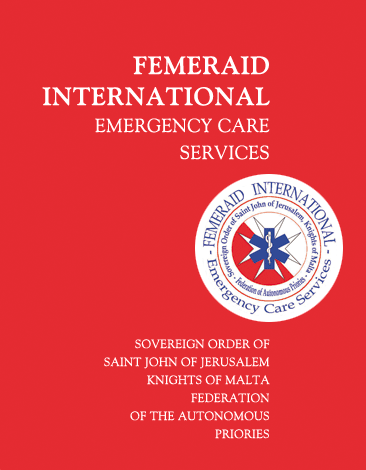The Air Rescue Team of FEMERAID International informs all our members, Knights and Dames of the Sovereign Order of Saint John of Jerusalem, Knights of Malta, Federation of the Autonomous Priories (KMFAP) about the followings:
Do you feel sad, hopeless, or low-energy?
Are you having difficulty sleeping or concentrating?
Although these are common symptoms of depression, they can also indicate other health problems. Depression is a common mood disorder affecting around 280 million people worldwide, but several conditions can mimic its symptoms, including:
Chronic Fatigue Syndrome (CFS)
Similarities: Both CFS and depression can cause extreme fatigue and difficulty concentrating. Differences: CFS often includes dizziness, muscle and joint pain, and headaches, which are less commonly associated with depression.
Fibromyalgia
Similarities: Depression is a common symptom of fibromyalgia that can lead to fatigue and cognitive difficulties. Differences: Fibromyalgia specifically involves widespread musculoskeletal pain and heightened pain sensitivity.
Lyme Disease
Similarities: Known as the “great imitator”, Lyme disease can cause fatigue and cognitive symptoms similar to depression.Differences: Lyme disease often presents with a distinctive rash (erythema migrans) and can lead to more severe joint pain and neurological symptoms.
Hypothyroidism
Similarities: Symptoms can include fatigue, weight gain, and memory problems, overlapping with depression. Differences: Hypothyroidism typically causes additional physical symptoms such as dry skin, hair loss, and a slowed heart rate.
Vitamin D Deficiency
Similarities: May cause fatigue and mood changes resembling depression. Differences: Often accompanied by bone pain and muscle weakness.
Anaemia
Similarities: Causes extreme fatigue, brain fog, and mood changes that can be mistaken for depression. Differences: Anaemia typically presents with symptoms like pallor, shortness of breath, and dizziness.
Bipolar Disorder
Similarities: The depressive episodes can be indistinguishable from unipolar depression. Differences: Bipolar disorder includes episodes of mania or hypomania, characterized by elevated mood, increased activity, and sometimes risky behaviour.
If you experience symptoms that could be attributed to depression or any of these conditions, it is important to seek medical advice. Your doctor can conduct a thorough evaluation, including physical exams, laboratory tests, and possibly referral to specialists, to accurately diagnose the underlying cause of your symptoms and recommend appropriate treatment.
23rd May 2024
Dr. Nuno Gonçalo Cosmelli
Air Physician
Director of Air Rescue Service
General Secretary of FEMERAID International




